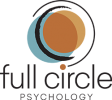“Go easy on yourself.
Whatever you do today, let it be enough.”
“Go easy on yourself.
Whatever you do today, let it be enough.”
ANXIETY & DEPRESSION
Anxiety and depression are two of the most common reasons for people to seek out counselling. It is natural to experience ups and downs in life, times of increased stress and anxiety, depending on the circumstances. It’s when mood and anxiety start getting in the way of our ability to function, preoccupy our days, or prevent us from getting rest at night, that seeking help may be necessary. Sometimes it’s just a matter of having a few sessions to learn new skills that help with regulating emotions and alleviating anxiety levels. Other times, we may need a little more time to focus on the root of these patterns, so that long-term you can experience less suffering and increased success in managing overall.
Anxiety can manifest itself in multiple ways. Some common themes are:
- Excessive worrying
- Difficulty sleeping, restlessness
- Increased fatigue
- Difficulty concentrating
- Physiological symptoms – chest pains, shortness of breath, heart palpitations, feeling hot, sweaty or shaky
- Increased irritability with others
- Feeling that something bad is going to happen
- Avoid situations you cannot predict or control
Signs of symptoms of depression can also vary and may include:
- Loss of appetite
- Loss of interest in pleasurable activities
- Experience little to no enjoyment
- Low motivation
- Fatigue or insomnia
- Self-isolation
- Memory difficulties
- Feelings of powerlessness
- Feelings of shame or self-doubt
If we neglect our mental health, the ramifications can be dire and we may increasingly lose touch with ourselves and those we love. Life may become less fulfilling and purposeful. We may experience symptoms of burnout, and start seeing the effects that mental strain has on our body function. These are just a few indications that it is time to make yourself and your well-being a priority.

